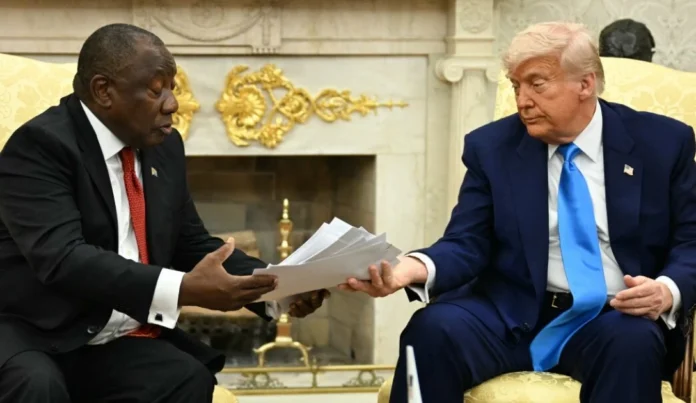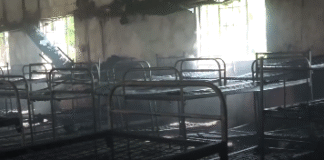
The Trump administration is considering a refugee admissions cap of around 40,000 for fiscal year 2026, with most of those slots earmarked for white South Africans, in what would mark a major departure from decades of U.S. refugee policy, according to U.S. officials and internal program documents reviewed by Reuters.
Two officials familiar with the discussions said as many as 30,000 of the 40,000 spaces could be allocated to Afrikaners, a Dutch-descended minority in South Africa that President Donald Trump has pledged to prioritize, citing claims of discrimination and violence against them, allegations the South African government has rejected.
The proposal would sharply reduce refugee admissions from the 100,000 accepted under President Joe Biden in 2024, though it is higher than Trump’s record-low ceiling of 15,000 set in 2021. Officials said lower caps, including 12,000, are also under consideration.
White House deputy press secretary Anna Kelly stressed that no final decision had been made, saying Trump would issue a determination in September. “President Trump has a humanitarian heart, which is why he has welcomed these courageous individuals,” she said, adding that current figures remain speculative.
The plan has sparked concerns within U.S. agencies. The Department of Health and Human Services (HHS), which oversees refugee resettlement, has redeployed staff to support the South Africa program after recent workforce cuts. Some of the new personnel sent to Pretoria reportedly lack refugee screening experience.
Since May, only 93 South Africans have been admitted, despite earlier promises of larger numbers. Some arrivals have already complained to HHS about reduced refugee benefits, citing difficulties obtaining Social Security numbers, work permits, and housing after government-funded stays expired.
Trump officials say a small number of Afghan allies and possibly Ukrainians may also be admitted under the new ceiling, while some slots would remain unallocated for other groups.
The U.S. currently faces pressure to address the needs of 37 million refugees worldwide, according to United Nations estimates.
Critics argue that prioritizing Afrikaners would politicize refugee admissions and upend decades of bipartisan precedent focused on humanitarian vulnerability rather than nationality or race.
Written By Rodney Mbua

















